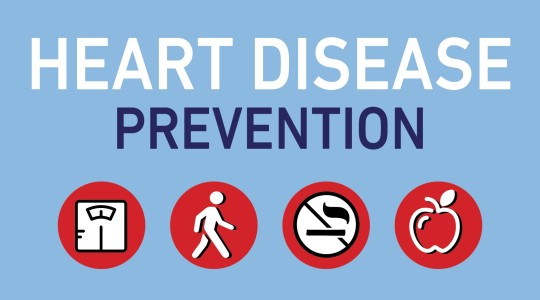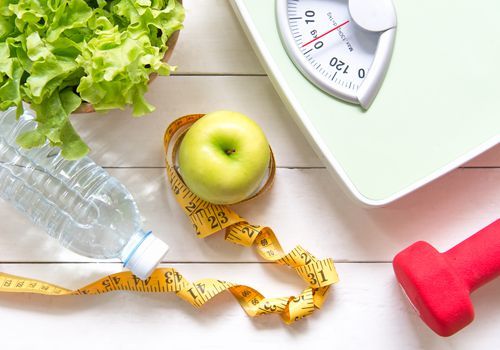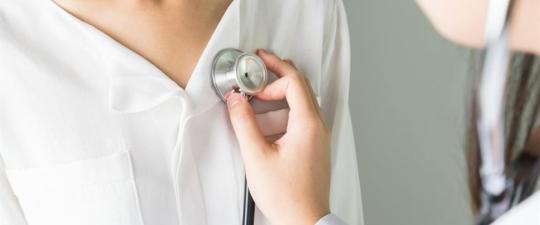#how do you manage to avoid being prescribed bad meds if you don't have a diagnosis yet??
Explore tagged Tumblr posts
Note
Hey Nat, do you ever get scared starting new meds? Because I'm getting new ones tomorrow that I'll probably start tomorrow and Ive had some bad experiences - like some I've been allergic to, some made my symptoms much worse and I could tell because I was more anxious, depressed or paranoid, one made me act out but I FELT AMAZING lmao so I was annoying and scaring everyone else and way more impulsive but I felt so free and uninhibited (because I was but in the worst way possible lmao). A couple gave me physical side effects like headaches and nausea but I was told to push through and get used to them, they didn't help and then the withdrawal symptoms were so bad I wanted to go to hospital. I don't have bipolar fwiw but I've been on most categories of psychiatric meds and I've gone from being excited to try new meds because they sounded promising, to having an almost panic attack. Idk my brain is exhausting to be around. But do you ever feel that way?
I mean I don't know what they're medicating you for because you haven't told me (and you don't have to). I'm fortunate in that I've never really felt any major side effects (I do get warned about them) except weight gain on Wellbutrin but at the time I didn't really care about that because I was just like "I need something that makes this depression go away" (I do, and again this is very much another side of "my brain isn't quite right" do generally, as a rule, avoid meds that have weight gain as a side effect because I don't like to be bigger than a Size 8 eekkk and I know that's like also not quite normal of me but it is what it is and when I'm struggling with the other stuff I also don't want to be stressing about trying to overexercise or manage it to not be bigger). My biggest issue when trying new meds is "will this work" because so many haven't? Like I've been on every possible SSRI (by itself and with other stuff), I've been on Cymbalta, one doc prescribed Norpramin which like really did fuck all, I've been on every anti-anxiety med from Xanax (which I guess sorta works in that it feels nice I guess but it doesn't really help my symptoms), Espiride (does fuck all for me), Valium (really useful because I had a prescription for that when I went through a hectic party phase and self-medicated with those to come off the party drugs, which was a big w but I don't think that's what the doc prescribed them for) (also I kept saying to the docs like I don't think you need to treat the anxiety, like I don't think I'm ANXIOUS I think I'm just concerned and with the new diagnosis like I think they were treating hypomania as anxiety), one wack ass doc put me on Lyrica (gabapentin) which I think may have been weirdly enough shooting in more of the correct direction but he did that to reduce my drinking but all those med were, again, fairly useless at actually treating what's wrong with me. So my biggest concern when starting new meds, for me personally, is major skepticism. I'm like "how is this one/this combo different from the other seventy things I've been on since I was sixteen/seventeen?"
So those are actually the questions I ask now. "What makes this different to the other drugs?" and then I also ask for the specific biological/pharmacological ways it works so that I really, really understand what the goal of the drug is. I do ask about side effects (which you've done). I ask how long I should wait before it takes effect/I worry (because for example SSRIs are usually +/- 6 weeks so there's no reason to go back until you've been on it for 6 weeks unless you just like throwing money at docs lol and if you're in public then I don't even think they'll see you before the 6 week mark). I'm not really excited these days - even with the Lamotrigine like I wouldn't say I was excited, I just think they're medicating the right thing now but I suspect I may have to go onto Lithium because my clinical psych said so (she can't prescribe obviously but her take is because I mask it so well - which we do know and the psychiatrist was aware/did mention that - I haven't been put on strong enough meds and the dosage she thinks from her experience, and again she can't prescribe, is WAY too low considering how bad my Bipolar actually is). Also after having these chats with the docs I ALWAYS ALWAYS ALWAYS do my own research. Obviously not like health.com or whatever lmao but like I actually read up on studies and stuff and what these things are meant to do/where they're used/what countries don't use them and why (because with psych meds some countries always ban certain things I've found) and just make sure I know what's going on as much as possible as not a doctor. I think that's super important because as I've said before when people here ask me, *we* know better what's wrong with us than the docs do a lot of the time and *we* will have to live with it. Like the docs know the meds/solutions but they actually don't have to live with it and they actually don't know what we feel day to day because in an hour appointment there's no way we can cover everything going on lol. So yea. Ask lots of questions, do your own research from reputable sources, check how long it's meant to take to work and if it doesn't work in that time go back and be like "ok homie this didn't work, what's the next thing we can try???"
Also with psych meds always be sure you're not JUST relying on meds and are doing therapy of some sort and exercising (I know it's annoying when you get told this but you really do have to exercise unless there's a VERY good physical reason for you not to be and even then I'd see if maybe you can do SOMETHING like light stretching or chair yoga or something) and eating sensibly because like if... you're not eating (what I sometimes do) or eating complete junk and if you're using mood altering substances (alcohol, THC, anything more hectic than that OBVIOUSLY even more so unless the THC/psilocybin/K has been prescribed and you're using medical grade/medicinal doses but like alcohol like obviously no one will prescribe to you) recreationally lbr besties like whatever you're on is probably not gonna work correctly lmao. Like you can't take MDMA and then the next day be like ":((( my SSRI isn't working" like maybe it's not but let's cut the MDMA first.
1 note
·
View note
Text
WAYS TO PREVENT HEART DISEASES

A main cause of mortality is heart disease, so it's not imminent. There are many ways to reduce your risk of heart disease, although you can't change some risk factors, such as family history, sex or age. Get started with these seven tips to improve your heart health:
1. Don't use cigarettes/tobacco
Quitting smoking or using smokeless tobacco is one of the best things you can do with your spirit. Even if you're not a smoker, make sure the second-hand smoke is avoided.
Chemicals in tobacco will destroy your blood vessels and your heart. The oxygen in your blood is reduced by tobacco smoke, which raises your blood pressure and pulse rate, so your pulse needs to work harder to supply your body and brain with enough oxygen. As soon as a day after leaving, the chance of heart attack continues to decline. Your chance of heart attack decreases to about half that of a smoker after a year without cigarettes.
You'll start reaping benefits as soon as you leave, no matter how long or how much you've smoked.
2. Get moving
Aim at least 30 to 60 minutes of physical operation.Your risk of heart attack will be reduced by healthy, daily physical exercise. Physical exercise allows you to regulate your weight and minimise your risk of developing other diseases, such as high blood pressure , high cholesterol and type 2 diabetes, that can place a burden on your core.
You will need to work your way up to these targets steadily if you have not been involved for a while, but in general, you can strive for at least:
Mild aerobic exercise for 150 minutes a week, such as exercising at a brisk speed
Vigorous athletic exercise for 75 minutes a week, such as hiking
Two or three hours of weight conditioning a week
Also brief periods of exercise have cardiac benefits, but don't give up if you can't follow the requirements.
It will help to drive for just five minutes, and tasks like gardening, housekeeping, taking the stairs and walking the dog all count against the sum. To gain benefits, you don't have to exercise strenuously, so by the the strength, length and frequency of your workouts, you can gain greater benefits.

3. Eat a cardiac-healthy diet
A balanced diet will help protect the heart, increase blood pressure and cholesterol, and decrease the risk of type 2 diabetes.
Fruits and veggies
Beans or other leguminous plants
Fish and lean meats
Dairy foods that are low-fat or fat-free
Entire grains
Fats that are safe, such as olive oil
The Culinary Techniques to Avoid Hypertension (DASH) feeding plan and the Mediterranean diet provide two types of heart-healthy meal strategies.
Dont allow the following intake:
Salt
About Sugar
Manufactured carbohydrates
tobacco
Saturated fat and trans fat (found in fried fast food, popcorn, baked goods) (found in red meat and full-fat dairy products)
4. Holding a good weight
Being overweight raises the risk of heart disease, especially around the middle. Excess weight, including elevated blood pressure , high cholesterol and type 2 diabetes, can lead to conditions that raise the risk of contracting heart disease. Calculating your body mass index ( BMI), which uses your height and weight to decide if you have a good or bad amount of body fat, is one way to see whether your weight is safe.
A BMI of 25 or higher is known to be overweight and is commonly associated with higher cholesterol, higher blood pressure, and an increased risk of stroke and heart failure.
The diameter of the abdomen may also be a helpful instrument for measuring how much belly fat you have. Your chance of heart failure is higher if the measurement of your abdomen is higher than:
40 inches for men (101.6 centimetres, or cm)
35 inches for women (88.9 cm)
It would be helpful to see even a slight weight loss.
A BMI of 25 or higher is known to be overweight and is commonly associated with higher cholesterol, higher blood pressure, and an increased risk of stroke and heart failure.
The diameter of the abdomen may also be a helpful instrument for measuring how much belly fat you have. Your chance of heart failure is higher if the measurement of your abdomen is higher than:
40 inches for men (101.6 centimetres, or cm)
35 inches for women (88.9 cm)
It would be helpful to see even a slight weight loss.
5. Adequate Sleep
Each night, most adults require at least seven hours of sleep. In your life , make sleep a priority. Establish a routine for sleep and keep to it by going to bed and waking up each day at the same time. Keep your bedroom dark and silent, so sleeping is easier.
Ask the doctor if you need to be checked for obstructive sleep apnea, a condition that can raise the risk of heart failure, if you feel like you've been having adequate sleep but are still exhausted during the day.
Loud snoring, slowing breathing for brief stretches during sleep and waking up gasping for air involve symptoms of obstructive sleep apnea. If you are overweight or using a continuous positive airway pressure (CPAP) system that holds your airway open as you sleep, therapies for obstructive sleep apnea can involve losing weight.
Any people contend with tension, such as overeating, alcohol or smoking, in harmful ways.
On the look for medicines at the comfort of your home? 3MEDS, best pharmacy in India to buy medications as it brings the best of high-quality medication at the lowest prices.
6. Stress Management
Seeking alternative ways to relieve tension may help improve your health, such as physical fitness, relaxing exercises or meditation.
7. Get frequent screenings for fitness
Your heart and blood vessels can be weakened by elevated blood pressure and high cholesterol. But you certainly won't know when you have these disorders without looking for them. You will be told by routine monitoring what the numbers are and whether you ought to take action.
Pressure with blood. In childhood, routine blood pressure screenings normally starts. Your blood pressure should be checked at least once every two years, beginning at age 18, to monitor for elevated blood pressure as a risk factor for heart disease and stroke.
If you are aged 18 and 39 and have elevated blood pressure risk factors, you are expected to be tested once a year. A blood pressure test is also issued annually to people 40 and over.
Levels of Cholesterol. Adults normally have their cholesterol checked every four or six years, at least annually. Cholesterol screening typically begins at the age of 20, but earlier checks might be necessary.
Buy medicines online at 3 MEDS and avail discounts on genuine medicines and all healthcare products. 3MEDS is committed to providing safe, reliable, and affordable medicines but also worthy customer service.
Ded if you have other risk factors, such as an early-onset heart failure family history.
Form 2 test for diabetes. A risk factor for heart disease is diabetes. Your doctor may prescribe early screening if you have risk factors for diabetes, such as being overweight or having a family history of developing diabetes.
If your weight is normal and you have no other risk factors for type 2 diabetes, screening is recommended starting at 45 years of age, with re-testing every 3 years.
Your doctor can prescribe medications and recommend lifestyle changes if you have a condition such as high cholesterol , high blood pressure or diabetes. Be sure you take your medicine as prescribed by your doctor and adopt a schedule for a healthier lifestyle.


0 notes